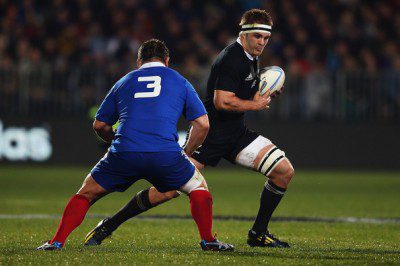
CHRISTCHURCH, NEW ZEALAND – It’s difficult to think of a sport that is more physically demanding than rugby. Though American football purists will certainly make long, loud claims about the toughness of their players (recent concussion woes aside), they usually fail to recognize a key component of rugby’s arduous nature: the year-round schedule. International stars can expect to be playing in or preparing for matches on no fewer than 46 weeks a year.
For reference purposes, consider the case of Tom Youngs, a 2013 Lion. He will begin play this season on September 8 against the Worcester Warriors. Then, the Premiership season will last until at least May 10, with scheduled international breaks. However, barring a drop in form, Youngs will be England’s starting hooker for the Six Nations as well as the Autumn Internationals, meaning that he will not benefit from these “rest” periods. Then, since the Tigers will presumably make the playoffs , if not the Premiership Final (though they have done so for the last nine years) his club season will extend at least into late May. After that, England will travel to New Zealand to take on the All Blacks in what is sure to be a grueling three test series, before he will finally be allowed to rest, for about a month, before pre-season training begins again.
To address the issue of burnout for its top stars, New Zealand has wisely instituted a policy of allowing six month sabbaticals from rugby. Richie McCaw recently took his, spending six months touring the world, being spotted in the crowd at Letterman, and generally recovering from a brutal stretch that saw him cement his place as one of the best flankers to play the game. Though his return could not help the Crusaders cement a place in the Super Rugby final this year, his evident passion during the few games he came off the bench at the end of the year showed that his desire, if not his form, had returned from the sabbatical with him. McCaw figures to be a part of the All Blacks push for consecutive World Cup winning campaigns, and giving him time to rest in the middle of the cycle, when he has enough time to recover form, but also close enough to the World Cup to do some real good for his body, was a wise move for both the Crusaders and the All Blacks. In addition, thanks to the depth that New Zealand possesses, it provided an opportunity for some young guns to show their mettle. Sam Cane acquitted himself reasonably well on the pitch in the summer series against France, an opportunity he would not have had if McCaw was available.

Now, just after McCaw’s return, New Zealand will face the loss of another superstar. Dan Carter recently announced that he would take a break from rugby, joining his colleague with a six month respite from the game. Some New Zealand supporters are worried about the impact that his loss will have upon the England series, but though his replacement Aaron Cruden has wobbled occasionally, he has also shown his capability of competing on the international stage. Carter cited McCaw as his inspiration, stating in a press conference “from my perspective his break has been a success, and I think there are going to be a lot of similarities between his break and my break in terms of getting away from the game and freshening up.”
New Zealand’s depth certainly allows them to permit sabbaticals from their star players with more impunity than other nations. For instance, South Africa’s dangerously thin attack would frighten few without Bryan Habana for six months, and Wales would be troubled by the extended absence of any of their star players without the depth to back them up. However, the policy of allowing players to rest and recharge should be adopted by other nations regardless of the immediate consequences. Extending the careers of stars like McCaw and Carter is good for the game and good for the team. Allowing players to rest, even at the loss of an entire season, will become an essential tool to lengthen careers and maximize player productivity. As with much that occurs in the rugby world, other nations would do well to follow New Zealand’s example in the treatment of their star players.

